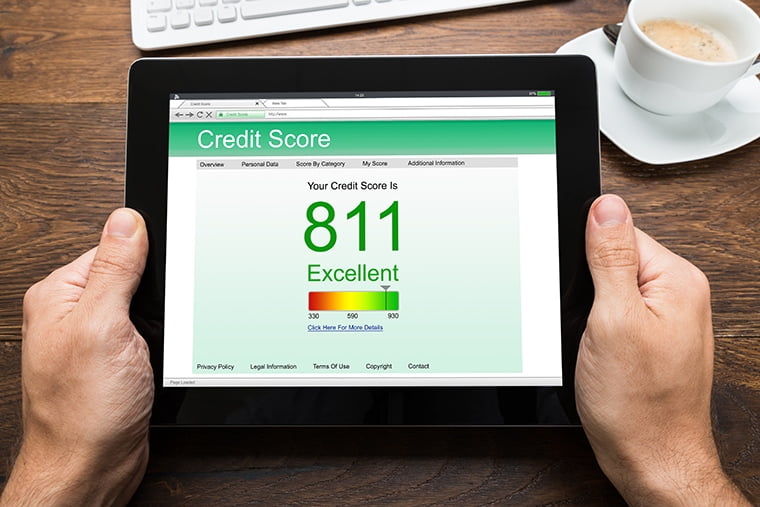BEFORE You Buy A Home!

* Please read our disclosures at the end of the article.
You probably know by now that your credit score is critical to not only be able to qualify for a mortgage but also to get the best rate on your loan. So before you go house hunting, let’s get that FICO® score up as high as possible!
#1 – Get Rid of Credit Card Debt
Okay, probably not so little known. But I’ll bet you still have some debt on one or more credit cards. Pay them off as soon as you can. It’s as simple as that.
Oh, and while you’re working on raising your credit score and getting pre-qualified by your mortgage lender, skip charging things on your cards, especially consumables like groceries and gas, even though you plan to pay in full when you get the bill.
Your score can fluctuate during the cycle between charging and payment and can cost you big time in the long run. Pay cash for consumables!
#2 – NEVER Buy Big-Ticket Items Before…
It’s tempting to buy new furniture, a new car, or a new boat in anticipation of owning your new home. After all, you’ll need new furniture, and you just can’t have that old jalopy in the driveway, so the new car is a must-buy, and well, might as well get the RV since it will save on vacation costs, right?
Wrong!
While you may “need” and want these new items, now is not the time. I can’t stress this enough, don’t buy any big-ticket items on credit until well after the sale is complete, you’ve moved into your new home and spent at least a month in it. Getting used to your new mortgage payment may take some adjustment, so give it some time.
Also, the lender will be reviewing your credit score and expenses right up to the day the loan has funded, and may even do a post-closing review. Making a poorly timed purchase can throw a huge monkey wrench in the works. Be patient, be smart, and communicate with your Realtor and Loan Agent about things that may affect your credit before doing them.
#3 – Check Your Credit Report First
Before you even think about applying for a loan and looking for homes, get a copy of your credit report. Your report will be a wealth of information about your credit history plus gives you preemptive knowledge of any mistakes or errors that may be listed there.
If you have a common name, this is particularly important since your identity can easily be mistaken for someone with the same name. Even between father and son.
It’s not uncommon for old accounts that should have been removed long ago to still be on your credit report. Depending on the time and circumstances, you can simply request the reporting agency remove that account from your report.
Keep in mind it may take several months for these old accounts to be removed or other disputes to be rectified, that’s one reason it’s so important to work on your credit well in advance of actually getting a mortgage loan.
#4 – Check What’s Missing
The flip side of finding negative information on your credit report is finding missing positive information. The Big 3 credit reporting agencies don’t work for you. So they aren’t scrutinizing every detail of your credit life, that’s your job. Often times positive credit history is missing (not necessarily on purpose), and it’s up to you to request that history to be reported accurately.
Look for credit cards, personal loans, car loans, and past mortgages that you’ve paid off that should still be reported. If your credit history is fairly young, you may want to have ‘alternative’ accounts added, such as your AT&T bill, Comcast bill, utilities, and store credit cards that you have a good or great history of paying on time.
If any of these have a questionable history, by all means, don’t say anything about them.
#5 – DO NOT Close Any Accounts
One common mistake that is often made after paying off credit cards or other types of credit accounts is to close those accounts thinking that’s a good thing. Unfortunately, that is not the truth.
Those accounts are an important part of your credit history and tell the credit bureaus that you have successfully paid those accounts off. Leave any accounts open when possible.
Eventually, credit card companies and banks may close your account from lack of use, so be aware of the impact that may have on your overall credit health.
Conclusion
While we think these hacks can help you improve and build your credit scores over time, this is not a comprehensive list, nor is it a quick fix for any credit woes. Your particular situation may be significantly different than what we’ve portrayed here.
The world of credit, finance, banking, mortgage lending, and such is a complex system, and there is no article on the web that can cover every instance and circumstance. However, we believe that knowledge is a critical advantage for taking care of your financial health. So keep reading and keep learning.
Disclosures:
We are not lawyers, tax accountants, financial advisors, or mortgage lenders. Any information provided in this article should not be relied upon as specific advice and is intended for informational purposes only. Please seek professional advice from your lawyer, CPA, or other licensed financial advisors for your specific needs.





Leave a Reply